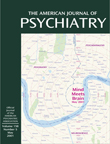Adderall for Obsessive-Compulsive Disorder
Mr. A was a 55-year-old man who had experienced OCD symptoms since childhood. At age 3 he had to reenter rooms until they “felt right.” He also described the symptoms of Tourette’s syndrome, such as rubbing his face with both hands, coughing, and adding words to the ends of sentences. In childhood he had numerous streptococcal infections and chorea-like movements. There was a significant family history of rheumatic fever and possible Sydenham’s chorea. His mother, two of his three children, and several maternal aunts all had OCD. Mr. A underwent medication trials with selective serotonin reuptake inhibitors, all at high doses, and was given behavior therapy—all to no avail.When he came in for treatment, he exhibited continuous OCD symptoms, including touching, retracing his path, repeating words, counting, and putting things in order. He scored 39 on the Yale-Brown Obsessive Compulsive Scale. Mr. A was eligible to undergo anterior capsulotomy at our clinic, but he opted for an experimental protocol with deep-brain stimulation of the anterior internal capsule. Another center in Europe had reported initial success using this same approach (2). However, Mr. A’s condition did not improve, so the implants were removed.Six months later, after experiencing no clinical change, Mr. A reported a dramatic improvement while taking Adderall, a combination of dextroamphetamine and amphetamine, which had originally been prescribed for his son’s attention deficit hyperactivity disorder. Mr. A would not allow his son to take the medication until he had experienced its side effects firsthand. During his trial of the drug, Mr. A noted that he could easily put obsessional thoughts out of his mind, and his rituals decreased. His Yale-Brown Obsessive Compulsive Scale score dropped to 12. Mr. A described the onset of improvement within 30 minutes of taking only 5 mg of the drug, but the benefit began to wear off after 3 hours. His dose was currently 10 mg t.i.d. It is of interest that the use of Adderall did not worsen his tics.
References
Information & Authors
Information
Published In
History
Authors
Metrics & Citations
Metrics
Citations
Export Citations
If you have the appropriate software installed, you can download article citation data to the citation manager of your choice. Simply select your manager software from the list below and click Download.
For more information or tips please see 'Downloading to a citation manager' in the Help menu.
There are no citations for this item
View Options
View options
PDF/ePub
View PDF/ePubGet Access
Login options
Already a subscriber? Access your subscription through your login credentials or your institution for full access to this article.
Personal login Institutional Login Open Athens loginNot a subscriber?
PsychiatryOnline subscription options offer access to the DSM-5-TR® library, books, journals, CME, and patient resources. This all-in-one virtual library provides psychiatrists and mental health professionals with key resources for diagnosis, treatment, research, and professional development.
Need more help? PsychiatryOnline Customer Service may be reached by emailing [email protected] or by calling 800-368-5777 (in the U.S.) or 703-907-7322 (outside the U.S.).

